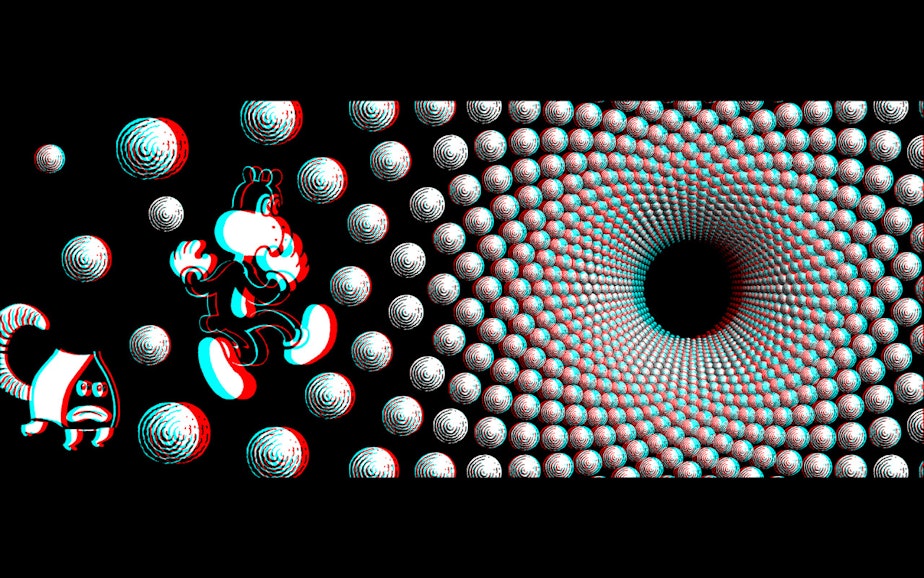What Makes A Genius In Seattle?

Name the first genius that comes to mind.
Artist Leonardo da Vinci?
What about composer Wolfgang Amadeus Mozart?
Many would agree both were geniuses.
But what people don't agree on is what that word "genius" really means.
Sponsored
University of Washington geology professor David Montgomery says the idea of genius is meant to identify something out of the ordinary.
“Unusually good, whether in intelligence, creativity or originality. Or, as I like to think of it, a confluence of all three,” he says.
Montgomery knows a thing or two about genius. In 2008, the MacArthur Foundation awarded him one of its famed “Genius grant” fellowships.
But he doesn’t use that word to describe himself, except in jest. “It’s hard to look at oneself that way, and I would be suspicious of anybody who did.”
Sean Nelson, arts editor at Seattle’s Stranger weekly, believes the word “genius” makes people uncomfortable, in part because it’s been overused.
Sponsored
“In the last decade, words like ‘awesome’ and ‘literally’ kind of lost their meanings as special rarified things. Likewise, genius,” he says.
Nelson was part of the Stranger’s staff in 2002 when the publication launched its own “Genius Awards.” Nelson says the tobacco company Brown and Williamson had offered the Stranger “a big pile of money.” So the alternative newspaper decided to create an annual arts award to dispense those funds.
Dozens of Seattle artists have been honored with the $5,000 cash prize. It’s not the kind of money the MacArthur Foundation hands out, but Nelson says the Stranger award does convey a community acknowledgement that its recipient creates work that's out of the ordinary.
Now, 13 years after the awards were created, the Stranger Geniuses are part of an exhibition at the Frye Art Museum called “Genius.”
Despite the show's title, Frye director and exhibition co-curator Jo-Anne Birnie Danzker also struggled to define "genius" when she began work on the project two years ago. She reached back to classical history to give this exhibition a little context.
Sponsored
“One of the key steps was looking at Greek and Roman notions of the genius,” Birnie Danzker explains. “And, if we want to translate (from the Greek), it’s the spirit of a place, and the spirit of an individual.”
She points out that in ancient Greece, a genius was also the spiritual guardian of its community, something she strongly believes Seattle artists to be. That’s something that worries her as the city grows and becomes increasingly unaffordable.
“If we let our artists go, if they’re forced to move away,” she says, “we’re losing our identity.”
Nelson shares that concern – which is why he’s happy the Frye has chosen to spotlight more than 60 Stranger Geniuses in its new exhibition.
“I have had my own misgivings about using the word ‘genius,’” Nelson says. But he believes there’s value in providing an institutional platform for conversation about both the word and the artists themselves.
Sponsored
“I guess it was a work of genius!” he says laughing.
“Genius” is at the Frye Art Museum through Jan. 8, 2016. The exhibition changes on a weekly basis, so check the museum website for updates.

